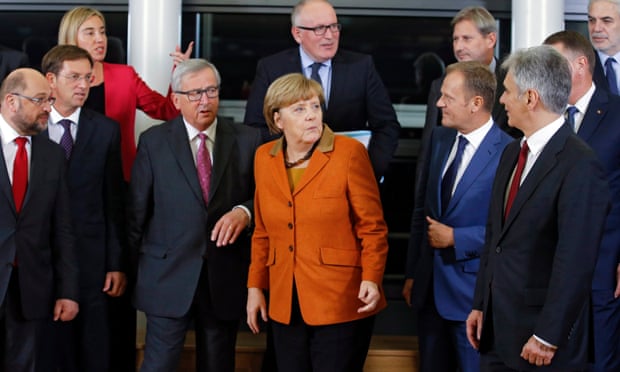by Shelby Vcelka
Impunity Watch Desk Reporter, Europe
BERLIN, Germany–
After weeks of debates within the government regarding the recent “overwhelming” influx of refugees, Germany is preparing to expedite the process of deporting asylum seekers. On Thursday, Chancellor Angela Merkel announced that an agreement had been reached between the coalition government, allowing for three to five reception centers that would either accept or deport refugee applicants. For weeks, the opposition government has requested the majority party to reduce the number of refugees allowed in Germany, citing struggling local authorities.

The leader of the opposition party, Horst Seehofer of the Christian Social Union, called the agreement “very very good,” and said his relationship with Merkel had been “cemented again.” However, he did not revoke his threat to file a legal complaint against the government over its expansive refugee policy. Other members of the opposition parties have criticized the agreement, stating that the number of refugees entering the country far exceeds the resources available.
Robert Habeck, a critic of the agreement and a member of the Green Party commented, “people are waiting for half a year before their asylum applications can even be submitted. It is a complete mystery as to how the federal government can conclude the process within a few weeks in the special reception centers.”
Other critics within Merkel’s coalition government believe the agreement curtails the rights of refugees, and questioned the legality of detaining asylum seekers and refugees for an indefinite period of time. Initially, Merkel requested that “transit zones” be set up across the country, where new refugees would be detained before their status was determined. The Social Democratic Party, who claimed these zones would be akin to “internment camps”, rejected this.
Up to 10,000 refugees have entered Germany daily since January, totaling around 758,000 migrants. The influx has shown no signs of stopping, with the 800,000 refugee limit set by the German government likely to be exceeded sometime in the near future.
For more information, please see—
Chicago Tribune– Merkel ally says government will survive refugee turmoil— 04 November 2015
Al-Jazeera– Germany to expedite deportations of refugees— 06 November 2015
Irish Times– Germany agrees compromise on refugees after ‘intense’ talks— 06 November 2015
Wall Street Journal– Germany Steps Back Hours after Tighter Asylum Rules Are Unveiled— 06 November 2015


